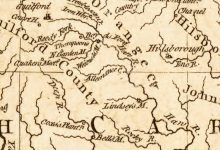The Battle of La Gueule (891): A Key Event in the Viking Raids on Germany
The Battle of La Gueule, fought in 891, remains a notable event within the broader context of the Viking raids on Germany. The conflict took place in the region of present-day Netherlands and saw the Danish Vikings achieve a decisive victory over the German forces. This battle, while not as famous as some others in the Viking Age, played a crucial role in the continued Viking pressure on the Frankish and Germanic territories.
Background
In the late 9th century, Viking raiders from Scandinavia, including the Danish Vikings, continued to make significant inroads into the European mainland. These raids targeted various regions, particularly along the coasts and river routes, where towns and settlements were vulnerable to pillaging and plundering. The German territories, particularly those in the Lower Rhine and surrounding areas, were prime targets for the Viking forces.
The Viking raids were primarily motivated by a combination of factors, including the desire for wealth, resources, and territorial expansion. At this time, the Holy Roman Empire, which encompassed much of modern-day Germany, was in a period of political instability. This left the region vulnerable to external threats, including the Vikings.
The Battle
The Battle of La Gueule occurred in the year 891. While the exact details of the battle are sparse, it is known that the German forces, possibly from the nearby cities of Mainz and Maastricht, engaged the Danish Vikings in a fierce confrontation. Despite the strength and size of the German defenders, the Danish Vikings emerged victorious. The location of the battle, near the present-day Belgian and Dutch borders, was strategically significant for the Viking raiders.
The Viking forces, which had mastered both land and sea warfare, utilized their mobility and tactical prowess to overcome the German defenders. This victory allowed the Danish Vikings to continue their raids and exert further pressure on the German territories, continuing the cycle of Viking incursions throughout the 9th century.
Aftermath and Impact
The outcome of the Battle of La Gueule was significant for both the Danish Vikings and the Germanic defenders. For the Vikings, this victory was part of a larger campaign of raids that would continue throughout the 9th and 10th centuries. The Germans, on the other hand, were left weakened by the loss and had to contend with the ongoing threat of Viking incursions.
While the battle did not result in a long-lasting shift in control of territory, it contributed to the broader Viking strategy of disrupting the stability of the Holy Roman Empire and other European kingdoms. The Danish Vikings, like other Viking groups, would continue to target wealthy cities and regions, further destabilizing the area.
Conclusion
The Battle of La Gueule in 891 was a key moment in the Viking raids on Germany. The Danish Vikings’ victory over the German forces exemplified the power and effectiveness of Viking raiding tactics. Though the battle itself may not have been a decisive turning point in history, it serves as a reminder of the ongoing Viking threat to the European mainland during this period. The results of the battle also contributed to the larger narrative of Viking expansion and their impact on European politics, trade, and culture during the medieval era.

